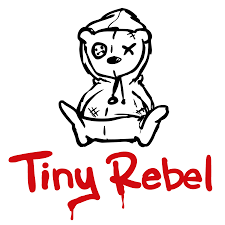The rise of artificial intelligence (AI) has revolutionised how we work, learn, and communicate. Tools like ChatGPT provide learners pursuing an ILM Award in Leadership and Management with valuable resources. However, understanding the ethical use of AI is crucial for maintaining integrity and developing as a capable leader.
Here’s how to navigate the right and wrong ways to integrate AI into your assignments.
Misusing AI: what to avoid
AI misuse undermines the purpose of ILM assignments and your leadership growth. Common missteps include:
Submitting AI-generated content: Relying on AI to create significant portions of your assignment misrepresents your understanding and effort.
Avoiding critical thinking: Letting AI turn vague notes into polished answers means losing your unique voice and insights.
As Nevra Sezgin, Impellus Assessment Team Manager, explains:
"Assignments are designed to reflect your thinking, application of theory, and insight. If AI answers for you, it’s no longer your voice or learning being assessed."
Plagiarism rules aside, relying on AI for assignments means missing out on the opportunity for reflective learning and developing essential leadership skills.
Using AI the right way
AI, when used ethically, can support your learning journey. Here are four ways to leverage AI responsibly and ensure your final writing is entirely your own, reflecting your insights and understanding:
- Understanding theories and frameworks
AI can explain models like PESTLE or SWOT, providing a helpful starting point. Use these insights to enhance your understanding—not replace in-depth research or real-world application.
- Generating ideas and examples
AI can help to brainstorm examples or explore how theories apply in practice. Tailor these suggestions to your organisational context to ensure relevance and originality.
- Supporting your writing process
AI can support your assignment writing without compromising authenticity:
- Building outlines: Use AI to structure your assignment logically or suggest ways to organise content effectively.
- Clarifying concepts: Ask AI to highlight unclear areas or suggest questions to deepen your analysis.
- Refining arguments: Use AI to spot gaps or inconsistencies in your reasoning and improve coherence.
- Validating your reasoning
AI can check if your arguments align with leadership theories or highlight areas needing more depth. For example, asking, “Does this reasoning align with leadership theory?” can help you spot gaps to address.
Why ethical AI use matters
Ethical use of AI reflects the integrity expected of leaders. Developing your critical thinking, analytical, and reflective skills ensures you:
- Apply learning practically: Adapt leadership theories to real-life scenarios.
- Navigate complexity: Make informed decisions beyond AI-generated prompts.
- Build confidence: Trust your ability to articulate and apply knowledge independently.
"AI is a tool, not a shortcut," Nevra says. "Using it ethically helps you grow as a leader and ensures your assignments reflect your true capabilities."
Final thoughts
AI is a powerful tool, but its value lies in how it’s used. Ethical use strikes the balance between leveraging technology for support and ensuring your ideas remain your own.
By mastering this balance, you’ll meet ILM standards and develop the practical skills and integrity that define effective leadership. After all, the goal isn’t just passing assignments—it’s growing into a manager who thrives in an ever-evolving world of work.






















